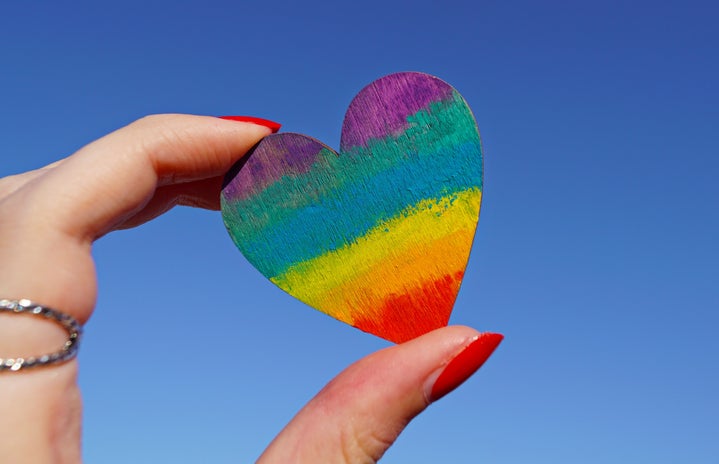Asexuality stands for the A in LGBTQIA, and it’s estimated that at least 1% of the population is asexual, so it’s really not as uncommon as you may think. Defined as having a lack of sexual attraction, someone who is asexual doesn’t experience sexual attraction or at least does not experience it to the same extent as most people (known as allosexuals, or people who experience sexual attraction). Asexuality is not as well known as some other orientations because of the fact that is literally defined as having a ‘lack of’- which makes it harder to notice. However, it is indeed a real orientation, with growing awareness in society.
People who identify as asexual (or ‘ace’) may experience sexual attraction to differing extents. Asexuality is a spectrum, and people may identify as ‘gray-ace’ (they occasionally experience sexual attraction) or ‘demi-sexual’ (they only experience sexual attraction after forming a romantic bond with someone). As well as this, because asexuality is just about sexual attraction, a lot of asexuals will also have another ‘identity’ in how they experience romantic attraction, and so might also identify as gay, bi, pan or a whole host of other ways.
There are a lot of misunderstandings about asexuality and what it means. I know that when I was younger, I had no idea about the term, and indeed it took me many years of research to truly understand and realise that the term applied to me! So, I want to dispel some of the incorrect ideas.
Common myths about Asexuality:
‘Asexuality is a ‘choice’‘
Asexuality is not a choice. Asexuals simply don’t experience sexual attraction in the same way. Asexuality also gets confused with celibacy and abstinence a lot, but celibacy is in fact a lifestyle choice and not an inherent part of a person, as a sexual orientation. People who experience sexual attraction but choose not to have sex are celibate, while asexuals do not experience that attraction in the first place. Though, some asexuals may choose to still have sex.
‘Asexuals don’t want a relationship‘
Asexuals don’t experience sexual attraction, but they still experience romantic attraction (i.e. the desire to be in a romantic relationship with a person). People who don’t experience romantic attraction are called aromantic, and whilst they may also be asexual, there is no automatic correlation between the two.
‘Asexuality is a phase‘
A very common response to someone coming out as asexual is ‘you haven’t found the right person yet’. You might recognise the echo of this in how other LGBT people are treated- lesbians, for instance, are often told that they just haven’t ‘found the right man’. This is untrue, and actually quite a hurtful statement.
Society is still very much centred around sex, and finding one special romantic partner, and so it’s treated as weird if someone doesn’t go along with those expectations. Asexual people may choose to identify differently at different points in life, but that identity is always valid.
‘Asexuals are broken‘
There is nothing wrong with not experiencing sexual attraction. There is also not an underlying traumatic reason for this, nor is there anything that needs ‘fixing’. Asexuality is not a mental or physical disorder, so there is nothing that needs to be treated. It is just a part of that person, in the same way being straight or being gay is.
Honestly, there are a lot of ‘myths’ out there about asexuality, but these are the ones I felt I needed to highlight the most. There’s a lot of nuance to asexuality, but at its core, asexuality is simply a lack of sexual attraction. Asexuals will differ greatly in their opinions on a lot of things sexuality and romance-related, just as everyone else does, so if you want to know specifics about a person (either as a friend or a possible relationship), just ask them! It’s important to be respectful and not invasive, but hopefully, you know them well enough to judge what’s appropriate to ask or not.
More generally, you can be a great ally to asexual people by just believing what they say. If someone says they are asexual, then now you know the basics of what it means, and you can accept that they probably have a pretty good grasp of their own feelings!
If you do want to learn more about asexuality (because I couldn’t possibly sum it all up here), then there’s a lot of online resources around. The best one is likely the AVEN forum (the Asexual Visibility and Education Network), so check it out for more information.


